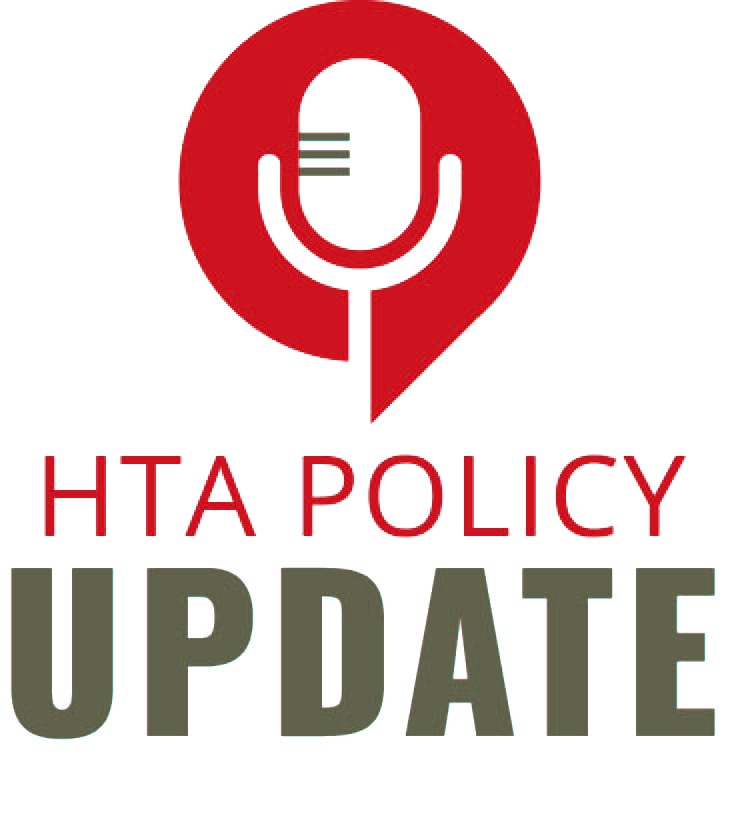HTA Policy Update
Section Editors: Sandra Nestler-Parr, PhD, MPhil, MSc; Ramiro E. Gilardino, MD, MSc

Welcome to the second edition of the HTA Policy Update which shines a light on the recently created Canadian Drug Agency and provides a brief update on the EU HTAR. We welcome suggestions and guest editorials for future issues. Please contact the Value & Outcomes Spotlight editorial office with your suggestions.
The Canadian Drug Agency: The federal government’s national pharmacare agenda gives CADTH a new name and an expanded mandate
Trevor Richter, BSc, MSc, PhD, Executive Director, Global Market Access, BioCryst Pharmaceuticals, Ottawa, Canada; William (Bill) Dempster, BA, LLB, MA, President, 3Sixty Public Affairs, Ottawa, Canada
Health technology assessment (HTA) is set to take on a broader role in Canada, as the federal government pushes national pharmacare legislation through Parliament,1 which has seen the creation of the Canadian Drug Agency (CDA). Although named in the pharmacare legislation, CDA is not a government organization but is a not-for-profit corporation with a board of directors comprising provincial and territorial public drug program leaders.2
CDA will be developed from CADTH, a nongovernmental agency renowned for the use of HTA to support health policy decision making. The new CDA mandate extends beyond CADTH’s functions to focus on appropriate use of medications, pan-Canadian data collection, and expanding access to health data, including real-world evidence.3,4
HTA was a cornerstone of the work done by CADTH. Most notably, CADTH’s pharmaceutical reviews and reimbursement recommendations have guided publicly funded provincial and territorial drug programs. While it is hoped that the CDA will leverage HTA to address its broader mandate, it is unclear how the increased emphasis on a federal health policy agenda might impact HTA programs that have primarily served provincial and territorial interests.
HTA focused on pharmaceuticals presents an acute challenge for provinces and territories in Canada, largely as a result of Canada’s poor record in providing timely access to new pharmaceutical technologies. Canada ranks last in the G7 and 19th out of 20 peer countries in the Organisation for Economic Co-operation and Development in how long it takes for approved new medicines to become publicly funded for patients.5 It is unclear how the creation of the CDA will address this challenge. Given that the provinces and territories recently established the pan-Canadian Pharmaceutical Alliance as an independent agency with a mandate to negotiate drug prices, questions have arisen about the appropriateness of the provinces and territories participating in the federally controlled CDA,6 and the CDA has had to reassure stakeholders that reimbursement reviews will not be affected by its creation. Regardless of whether HTA programs that support access and reimbursement decisions for pharmaceuticals remain within the new CDA or elsewhere, it is crucial during this transition to maintain the integrity of Canada’s existing HTA infrastructure.
While the establishment of the CDA could significantly change the landscape for pharmaceuticals in Canada, its true impact will only become clearer over time. Whether the CDA succeeds will depend on how the new federal objectives can be balanced with the needs of the provinces and territories, which rely on the robust HTA processes that have long supported Canada’s healthcare decision making.
The political calendar may be the biggest factor in how far the CDA can go; the Liberal Party of Canada is far behind its rival Conservatives in the polls, and the minority government has to face voters by no later than October 2025. The race to stand up CDA before the Conservatives take over and Ottawa pulls back on national pharmacare initiatives (which happened the last time the Tories took power in 2006) has begun.
References
- House of Commons “In the Chamber” account on X. May 22, 2024. Accessed May 22, 2024. https://x.com/HoCChamber/status/1793451351495610529
- Canada’s Drug Agency. Board of Directors. Updated May 16, 2024. Accessed May 22, 2024: https://www.cadth.ca/board-directors
- Canada’s Drug Agency. CADTH Is Now Canada’s Drug Agency. May 1, 2024. Accessed May 22, 2024. https://www.cadth.ca/news/cadth-now-canadas-drug-agency
- Health Canada. The Government of Canada announces the creation of the Canadian Drug Agency. December 18, 2023. Accessed May 22, 2024. https://www.canada.ca/en/health-canada/news/2023/12/the-government-of-canada-announces-the-creation-of-the-canadian-drug-agency---helping-make-canadas-drug-system-more-sustainable-and-better-prepared.html
- Innovative Medicines Canada. More than just medicines: Canada’s innovative pharmaceutical industry is contributing to the country’s overall health. February 26, 2024. Accessed May 22, 2024. https://innovativemedicines.ca/newsroom/all-news/more-than-just-medicines-canadas-innovative-pharmaceutical-industry-is-contributing-to-the-countrys-overall-health/
- Paas-Lang C. CBC News. Health minister says he hopes some provinces will have pharmacare plan in place by end of 2024. March 3, 2024. Accessed May 22, 2024. https://www.cbc.ca/news/politics/pharmacare-provinces-deal-2024-1.7132534
Update on the EU Regulation for HTA
After the public consultation period, the European Commission adopted the Joint Clinical Assessment (JCA) Implementing Act of the Regulation on Health Technology Assessment in the European Union (EU HTAR; Regulation 2021/2282) on May 23, 2024. The Implementation Act on JCA provides more clarity on the process, timelines, and templates for JCAs and is an important milestone in the implementation of the HTAR. There were no surprises—timelines are tight for all elements of the JCA, and some may argue that the Implementing Act still leaves important issues unresolved.

